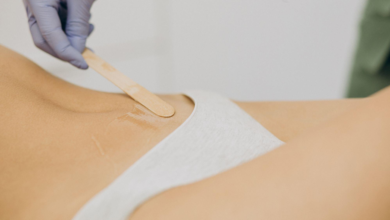Nutritional Guidelines After Gastric Sleeve Surgery for Optimum Recovery

From hydration and protein intake to vitamin supplementation, each phase of post-surgery nutrition plays a vital role in ensuring long-term success and a smooth recovery process. Recovering from gastric sleeve surgery involves more than rest; it requires a complete nutritional transformation. This form of bariatric surgery reduces the size of the stomach, limiting how much food you can eat and absorb. Because of these physical changes, following a structured diet is essential for healing, sustaining weight loss, and avoiding complications.
Phase-Based Nutritional Progression
Nutrition after gastric sleeve surgery is introduced in carefully timed stages. Patients begin with clear liquids, move to full liquids, then transition into soft foods, and finally regular textures. Each stage supports the healing process while minimizing stress on the digestive system.
Adhering to this timeline is crucial. Skipping phases or introducing solid foods too early can lead to discomfort, nausea, or stretching of the stomach. Patients are encouraged to take their time and follow their provider’s instructions closely to support their recovery and long-term results.
Understanding these steps and how they impact physical wellness is the first move toward healing. Patients who understand how to feel better during gastric sleeve surgery recovery are more likely to maintain hydration, avoid nutritional deficiencies, and progress safely through the recovery phases.
Protein Is a Priority
Protein is a cornerstone of the post-surgery diet. Since patients eat less overall, every bite must be nutritionally valuable. Protein supports muscle retention, wound healing, and energy levels. Lean sources like eggs, fish, yogurt, and protein shakes are commonly recommended and easy to digest in early stages.
The recommended intake often ranges between 60 to 80 grams per day, though this varies based on individual health profiles. Consistently meeting these goals helps reduce fatigue and supports a faster return to daily activities.
Importance of Hydration
Dehydration is a common concern after surgery because the stomach’s reduced capacity makes it harder to consume large volumes of liquid. Patients must sip fluids throughout the day to avoid dizziness, fatigue, and constipation.
Water, clear broths, and sugar-free electrolyte drinks are encouraged, while carbonated and sugary beverages are strongly discouraged. Staying hydrated also helps with digestion and nutrient absorption as patients transition into solid food stages.
Avoiding Nutritional Pitfalls
While the reduced stomach size promotes weight loss, it also limits nutrient absorption. This can lead to deficiencies if not properly managed. Patients should avoid foods that are high in sugar, fat, or empty calories, which can trigger nausea or dumping syndrome.
Selecting nutrient-rich options helps meet vitamin and mineral needs without exceeding volume limits. Understanding the ideal BMI for gastric sleeve surgery may also help patients stay focused on realistic, healthy goals during their nutritional transition.
Lifelong Supplementation and Monitoring
Gastric sleeve surgery often requires lifelong vitamin and mineral supplementation. Most patients will need daily multivitamins, calcium, vitamin D, and possibly iron or B12, depending on lab results. Regular follow-up appointments and bloodwork ensure any deficiencies are caught early and corrected promptly.
Staying consistent with supplementation plays a significant role in maintaining health and energy levels after surgery. Skipping these nutrients can undo the benefits of the procedure and lead to avoidable complications.
Conclusion
Proper nutrition after gastric sleeve surgery is the foundation for a healthy recovery and long-term weight management. From following the staged diet plan to prioritizing hydration and supplements, every aspect of your diet supports healing and sustained wellness. With professional guidance and dedication to these nutritional principles, patients are well-equipped to reach their goals safely and confidently.







